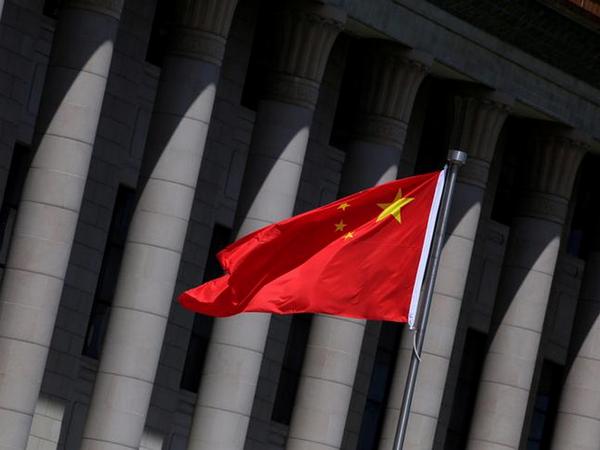

Beijing has long been notorious for its difficult reporting circumstances for international journalists, however, of late the Chinese party-state and allied players are influencing free speech outside China’s boundaries.
China recently threatened to sever ties with Israeli newspaper Jerusalem Post over a “controversial article,” reported The HK Post.
A Chinese diplomat demanded that an interview with Taiwan’s foreign minister be removed after it was published on a reputable Jerusalem website portal, and even threatened to cut ties with the portal unless the newspaper removed the interview.
Minister Wu warned Israel in the piece that Taiwan was overly reliant on China and that Beijing was prepared to attack Taiwan.
“China is an authoritarian country and they do business in a very different philosophy,” Wu told the portal in a video interview from his office in Taipei.
“Sometimes they use trade as a weapon, and we have seen them practicing their weaponized trade relations with many other countries,” said Wu.
However, Jerusalem Post refused to budge before China’s threat of severing ties with the publication. Yaakov Katz, editor-in-chief of Israel’s best-selling English newspaper, wrote on Twitter that he received a call from the Chinese embassy demanding the story be taken down or China would sever ties with the paper and “downgrade relations with the state of Israel,” reported Taipei Times.
“Needless to say, (the) story ain’t going anywhere,” Katz wrote.
Given Russia’s ongoing invasion of Ukraine and Taiwan’s continual danger from its much larger and aggressive neighbor, the piece seemed timely.
Following a phone conversation from a top diplomat at the Chinese Embassy in Israel shortly after the article was published on the aforementioned portal, the Chinese embassy denounced its publication and demanded that it be deleted immediately.
Furthermore, the ambassador stated that unless the interview with Wu was withdrawn, China will cut connections with the portal and that the post’s action would harm Israel-Chinese relations, reported The HK Post.
Recent studies and reports of past freedom of speech detentions and prosecutions uncover a totally different image of the Chinese people and a profoundly insecure dictatorship that is always fighting to crush even the most minor signs of grassroots protest on several fronts.
The ruling Chinese Communist Party (CCP) continues to tighten control over all aspects of life and governance, including the state bureaucracy, the media, online speech, religious practice, universities, businesses, and civil society organizations, while also undermining a series of earlier rule-of-law reforms. Xi Jinping, the CCP leader and China’s President, has consolidated personal authority to unprecedented levels in China.
China’s attempt to increase its influence in global news media has had some success in recent times. According to a global survey performed towards the end of 2020 among the International Federation of Journalists (IFJ) affiliate unions, China has succeeded in exploiting the Covid pandemic to strengthen its image in global media coverage by conducting continuous sophisticated long-term outreach efforts concentrating on both legacy and digital media.
This is indicative of a long-term strategic endeavor to transform the global news environment with a pro-China global narrative.
Since Xi took control, investigative journalism has practically vanished and journalists are predicting a “total censorship era.”
In his speech at the plenary meeting last year, Xi urged the country’s officials to work on portraying China as “trustworthy, beloved, and honourable.” Xinhua, China’s state-run news agency, even advised that the country take a “humble” attitude to dealings with the rest of the world.
Taiwan and Hong Kong have both been East Asia’s beacons of civil liberties. While one is a Chinese special administrative area and the other is a renegade island over which China claims sovereignty, both have strong Chinese and English-language media that operate independently of China.
As China progressively increased pressure in both markets to influence journalistic content and, at times, manipulate public opinion, freedoms in Hong Kong and Taiwan have deteriorated in recent times.
The sophistication and ferocity of Beijing’s information campaign against Taiwan, in which China-linked actors drove disinformation and political interference efforts to constantly innovate and explore new tactics to influence Taiwanese voters of all ages during the January 2020 general elections in Taiwan, exemplifies the sheer campaign to influence electoral and political outcomes.
Recent examples provide an ugly image of China’s escalating hysteria and its attempt to block honest information transmission. It is no coincidence that China’s expanding geopolitical influence is leading to an increase in its ‘favorability’ but explicitly at the expense of revealing its own vulnerability, reported The HK Post.